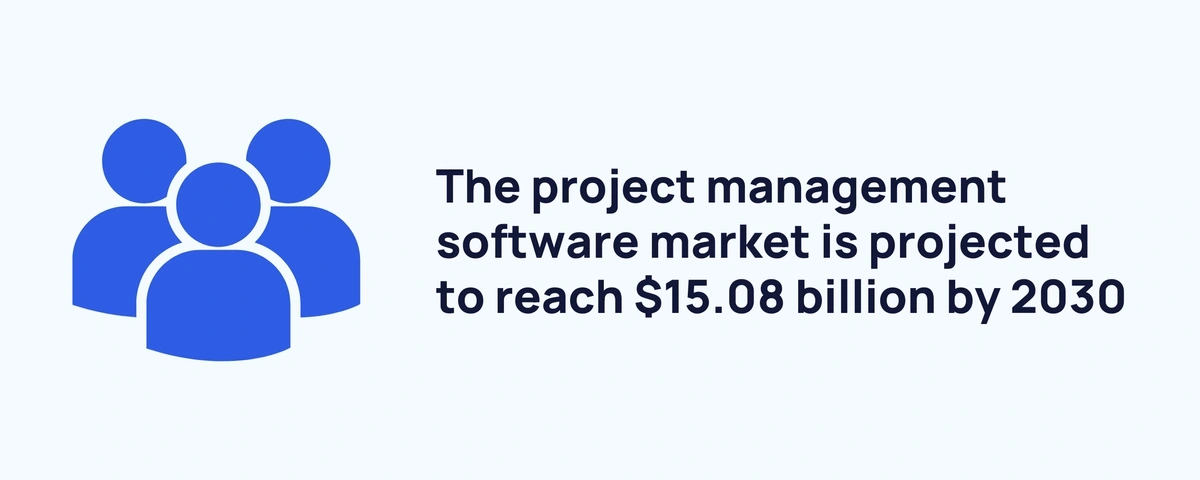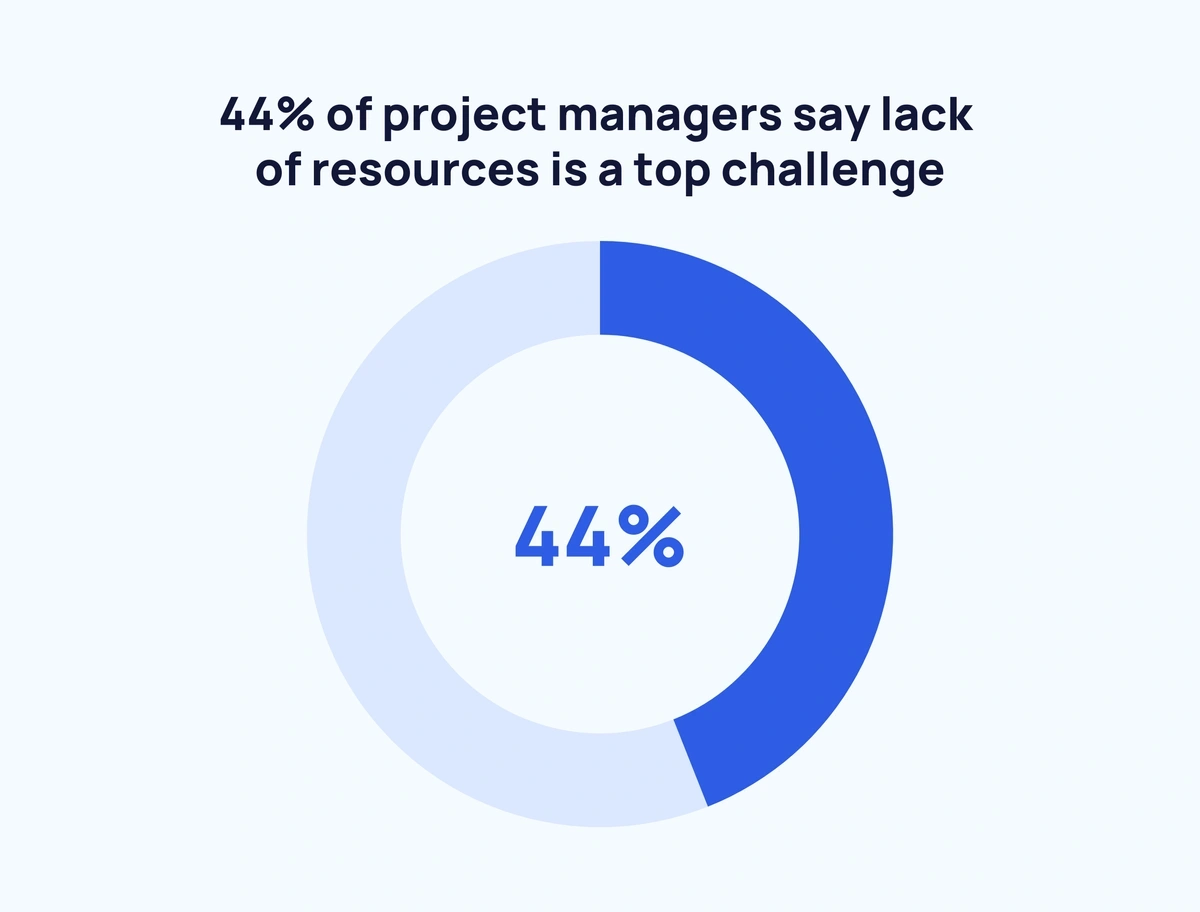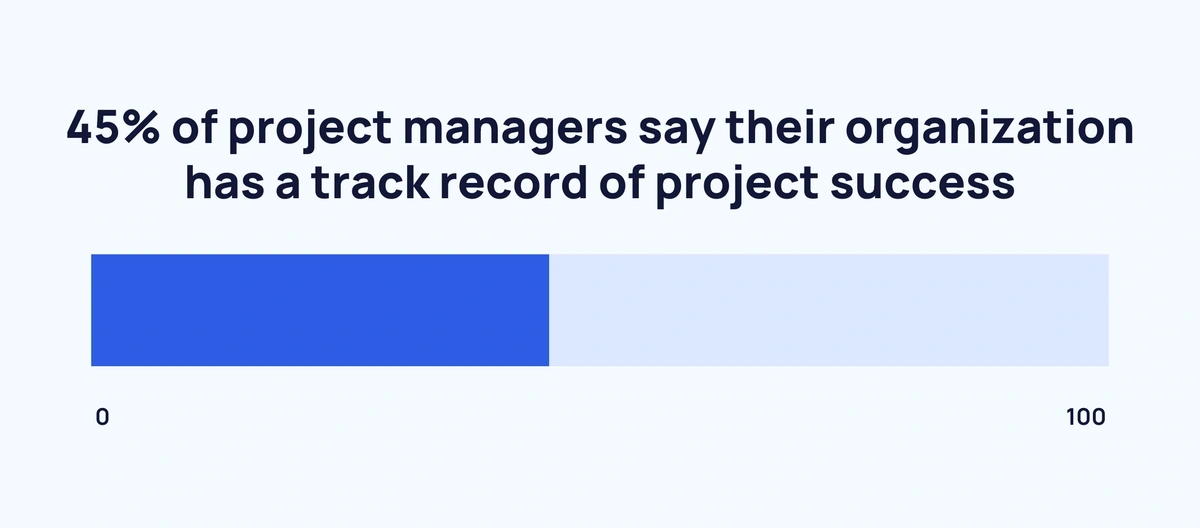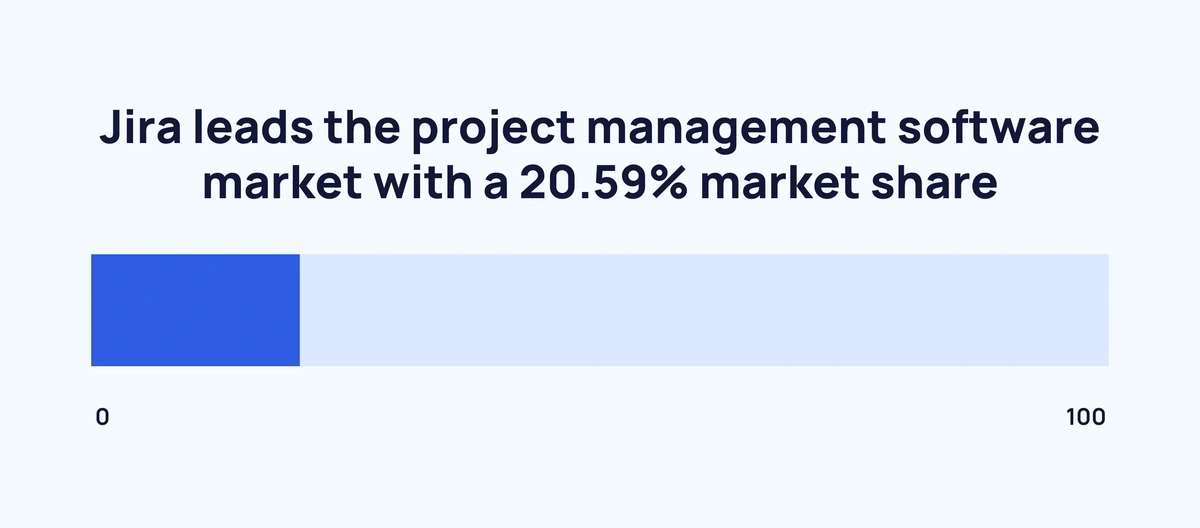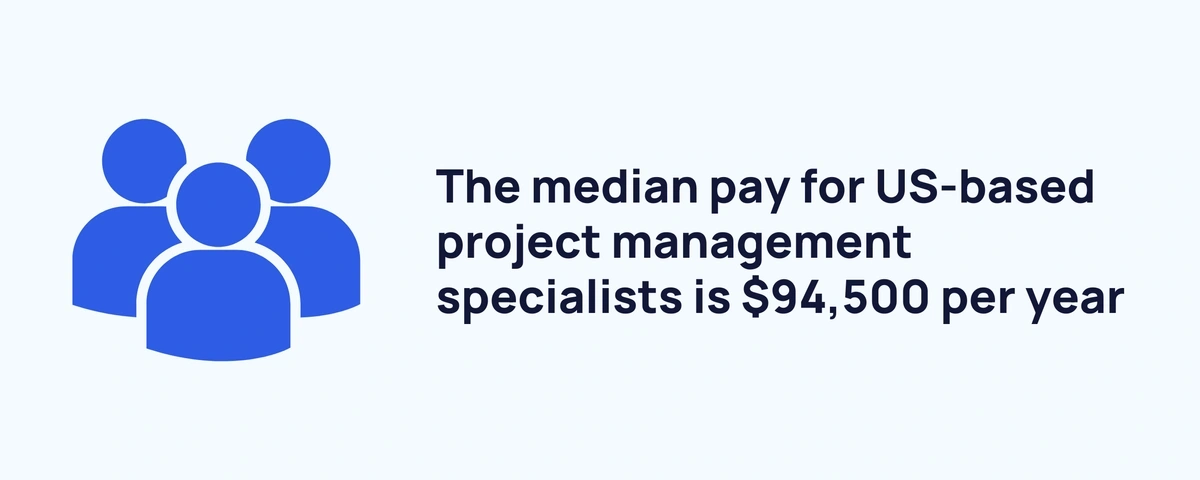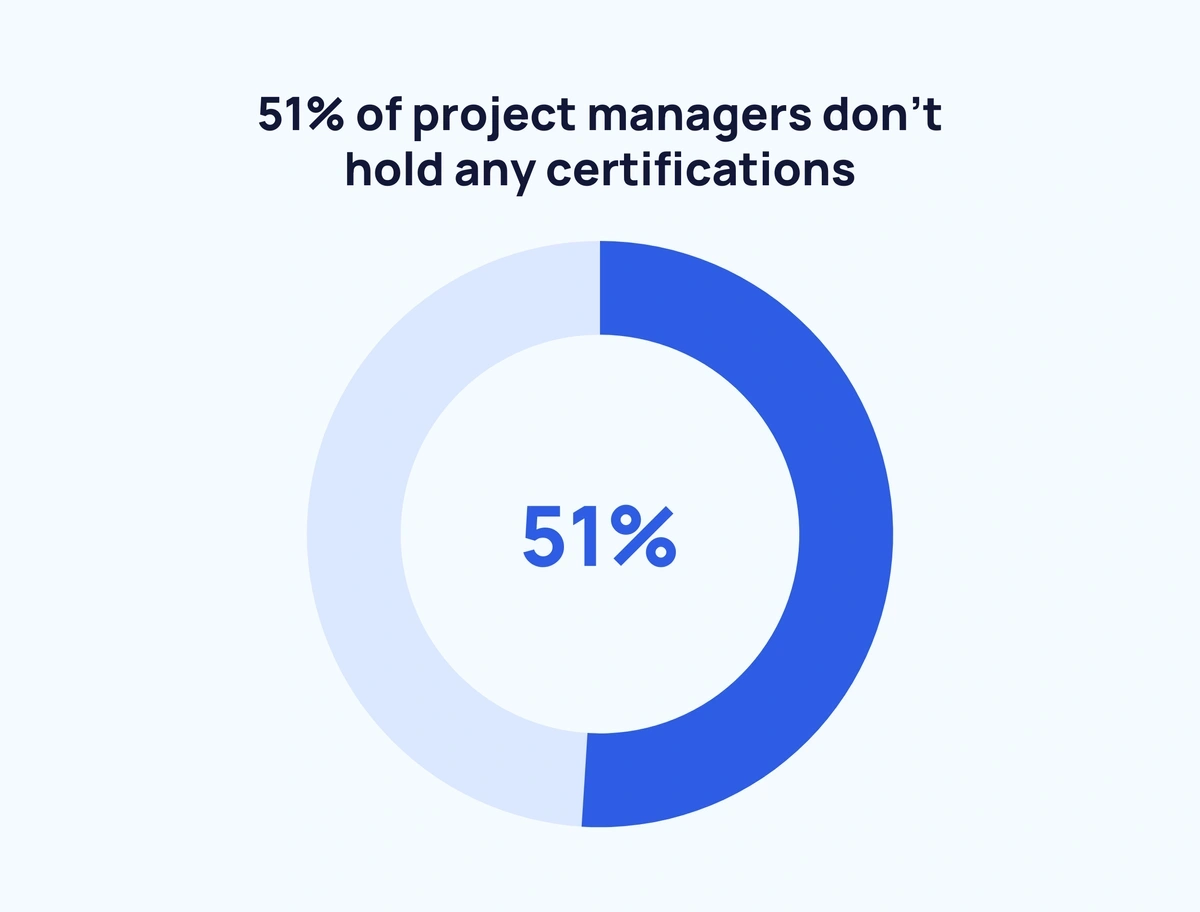Get Advanced Insights on Any Topic
Discover Trends 12+ Months Before Everyone Else
How We Find Trends Before They Take Off
Exploding Topics’ advanced algorithm monitors millions of unstructured data points to spot trends early on.

Keyword Research
Performance Tracking
Competitor Intelligence
Fix Your Site’s SEO Issues in 30 Seconds
Find technical issues blocking search visibility. Get prioritized, actionable fixes in seconds.
Powered by data from
40+ Project Management Statistics
Great project managers know how to use the right plans and processes to deliver projects on time and on budget. Many oversee multiple projects at the same time, directing teams across departments to hit milestones until the project crosses the finish line.
With the help of project management frameworks and software, project managers help organizations launch new products, offer new services, or improve internal processes.
Are today’s companies getting the most out of their project management teams?
Keep reading to see the state of project management today and in the future.
Top Project Management Statistics
Before you dive into the full report, take a moment to go over some of the top project management statistics and current trends:
- The project management software market is projected to reach $15.08 billion by 2030
- 54% of project management professionals say they lack effective collaboration technology
- 85% of project managers oversee multiple projects at the same time
- 91% of project management professionals say their organizations face project management challenges
- 37% of project managers have considered leaving the profession in the past year
The State of Project Management
Project management practices can look wildly different across organizations. Some companies have well-established PM best practices while others manage projects on the fly — often without a person in an official “project manager” capacity. These stats reveal the state of project management today.
The project management software market is projected to reach $15.08 billion by 2030 (Zion Market Research)
The PM software market was valued at $6.1 billion in 2021. Experts predict it will experience a 10.68% CAGR throughout the 2020s. Increasing demand for cloud-based project management solutions is a key driver behind the market’s future growth.
91% of project management professionals say their organizations face project management challenges (Smartsheet)
Challenges arise from employees being moved from project to project (45%), remote work (40%), and extended time leave (34%). Moreover, 85% of those who report organizational hurdles say they experience burnout from projects moving too quickly or with unrealistic deadlines.
85% of project managers run multiple projects at the same time (RGPM)
The vast majority of project managers run a portfolio of projects. Between two and five projects is most common, with 59% of project managers falling within this range. 11% run between six and 10 projects and 15% run 10 or more.
Experienced project managers are more likely to run large amounts of projects simultaneously. 22% of experienced PMs run 10 or more projects.
44% of project managers say lack of resources is a top challenge (RGPM)
What are the top challenges facing project managers today? A 2023 survey of 217 project management professionals asked that very question. The top answers:
- Not enough resources (44%)
- Unrealistic deadlines (31%)
- Not the right resources (26%)
- Insufficient budget (17%)
- Poor project quality (13%)
- Lack of schedule (11%)
37% of project managers consider leaving their profession each year (RGPM)
Less than 30% of new project managers are looking for a career change, but it’s a different story with more experienced PMs. 41% of project managers with some experience and 35% of very experienced PMs have thought about leaving the profession.
37% of project managers are satisfied with their organizations’ level of PM maturity (Wellingtone)
70% of project managers rate their department’s level of maturity at a 3 out of 5. Only 55% give their entire organization the same rating.
What does level 3 maturity look like? According to Asana, level 3 organizations have project management standards in place but have yet to use past metrics to inform future strategy.
45% of project managers say their organization has a track record of project success (Wellingtone)
Less than half of organizations exhibit consistent project success. Only 34% complete projects mostly or always on time. 34% complete projects mostly or always on budget. And 36% mostly or always deliver full project benefits.
Documentation is the most common task project managers wish to eliminate (RGPM)
When asked about the one task project managers would eliminate, 20% said documentation. Other tasks high up on PMs “least favorites” are meetings (11%), chasing teams (11%), budgets and procurement (10%), non-PM duties (8%), studying (6%), and planning and scheduling (5%).
43% of project management professionals feel that project teams are understaffed (Smartsheet)
Nearly half of PM professionals claim their teams don’t get the support they need. But there’s a disconnect between project management teams and C-suite executives. Only 20% of executives agree that project teams are understaffed.
There’s a disconnect in future outlooks as well. 60% of executives say they’re taking the right steps to help projects succeed more often in the future. Only 36% of project management professionals agree.
Successful projects lead to higher job satisfaction (Smartsheet)
When projects go well, employees tend to be happier. After a successful project, 54% of employees say work feels more satisfying and 54% say they experience less stress. 49% feel more in control at work and 42% report better focus.
Organizations that don’t prioritize soft skills lose 47% more of their budgets due to project failure (PMI)
Soft skills are key ingredients for success in project management teams. Organizations that prioritize soft skills have a 72% project success rate compared to 65% in organizations that don’t.
40% of projects in organizations that don’t prioritize soft skills experience scope creep, compared to 28% of projects in soft skill-focused companies.
Project Management Software Statistics
Project management software is critical for organizations to deliver projects on time and on budget. Software solutions offer a complete view of projects, from the big picture down to the most granular tasks. Here are some of the latest PM software stats.
Jira leads the project management software market with a 20.59% market share (Datanyze)
Over 34,000 organizations use Atlassian’s Jira software for project management, making it the most widely used software on the market today. Other key players are Microsoft Project (16.01%), Airtable (8.55%), Kanban (8.18%), and Smartsheet (6.98%).
54% of project management professionals say they lack effective collaboration technology (Wellingtone)
Technology limitations can hamper project management teams. 36% of project management professionals say they spend between four hours and one day manually collating project status info every month. Annually, that’s 50-100 hours wasted per person on manual tasks.
Only 23% of project management professionals use PPM or Resource Management software (Wellingtone)
Over one-quarter of project managers say they build project schedules manually using Excel, Word, or PowerPoint. 54% don’t have the technology to track KPIs in real time.
71% of project management professionals say their organizations’ use of collaboration software has increased over the past 12 months (KPMG)
43% said they’ve seen a significant increase in collaboration software adoption. Microsoft Teams is the most prolific collaboration software, with 88% of PMs reporting using it in their organization. 64% also use SharePoint, while 27% use Confluence.
Project Management Career Statistics
With so many organizations struggling to manage projects, what are the career prospects for project management? These stats examine what the field looks like today and what the future may hold for project management job-seekers.
The median pay for US-based project management specialists is $94,500 per year (BLS)
The top 10% of US-based project managers earn more than $159,140 per year, while the bottom 10% earn less than $49,750. Salaries trend higher in finance, insurance, and professional services and lower in construction.
BLS predicts 70,400 job openings for project managers per year through 2030.
Earning new certifications is the top career goal for project managers (RGPM)
When asked what their top career goal was, 21% of project managers said getting certified. 20% said getting a new job outside their current company, while 19% said getting a new role within their organization. Other top goals are working on bigger projects (17%) and delivering higher quality projects (7%).
Women make up just 28% of project management professionals (KPMG)
Project management is a male-dominated profession. The Project Management Institute’s 2023 report featured an in-depth study of women in project management. Here are some of the more notable stats from that report:
- Female project managers have the highest representation in healthcare (41%), education (37%), and financial services (29%).
- The median salary for women is 12% less than men in the United States.
- Women are 3.6% more likely to use agile and 5.4% more likely to use hybrid project management approaches.
51% of project managers don’t hold any certifications (KPMG)
31% of project managers have a PMP or other PMI certification. 13% have a PRINCE2, MSP, or other Axelos certification. Many are still new to the field: 41% of project managers have five or fewer years of experience.
Communication is the most important skill for project managers to develop over the next five years (KPMG)
When asked about the top skills project managers would need to improve in the next five years, 35% of executives and PMs mentioned communication. 33% said the ability to drive change within organizations would also be a top skill, and 30% mentioned leadership. Other top skills of the future are conflict management (26%), and agile methodology expertise (25%).
Wrap Up
Across every industry, organizations are undertaking complex projects to meet the evolving needs of their customers.
But too often, companies drop the ball on project management. Lack of formal project management processes, employee burnout, and the new remote work landscape are all challenges organizations need to overcome if they wish to stay competitive.
Successful project teams have a strong project manager at the helm and the resources (time, budget, and talent) to ensure even the most complex projects meet their goals.
For more statistics on similar topics, take a look at Future of Work (2023-2026), 47 Key Digital Transformation Statistics, and 51 Employee Productivity & Engagement Statistics.
Stop Guessing, Start Growing 🚀
Use real-time topic data to create content that resonates and brings results.
Exploding Topics is owned by Semrush. Our mission is to provide accurate data and expert insights on emerging trends. Unless otherwise noted, this page’s content was written by either an employee or a paid contractor of Semrush Inc.
Share
Newsletter Signup
By clicking “Subscribe” you agree to Semrush Privacy Policy and consent to Semrush using your contact data for newsletter purposes
Written By


Josh is the Co-Founder and CTO of Exploding Topics. Josh has led Exploding Topics product development from the first line of co... Read more




